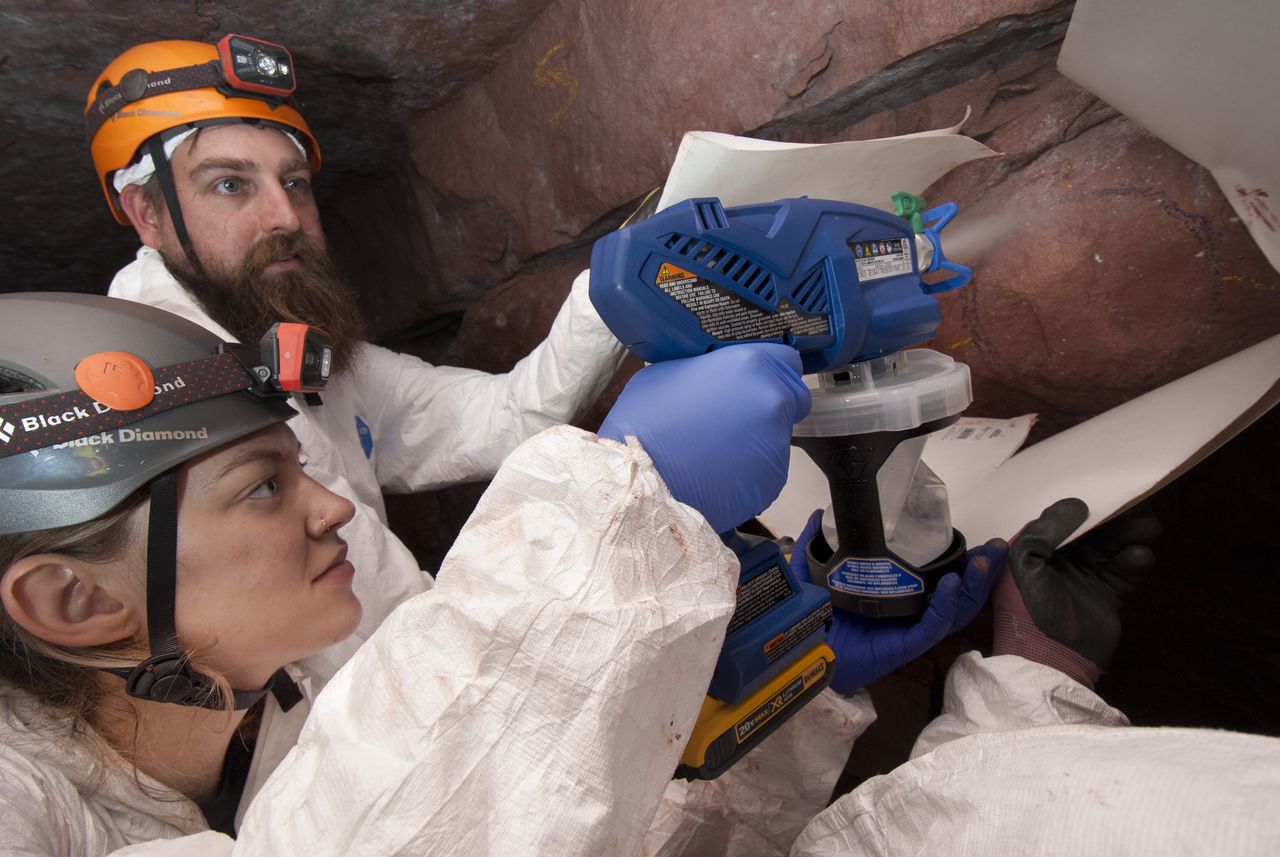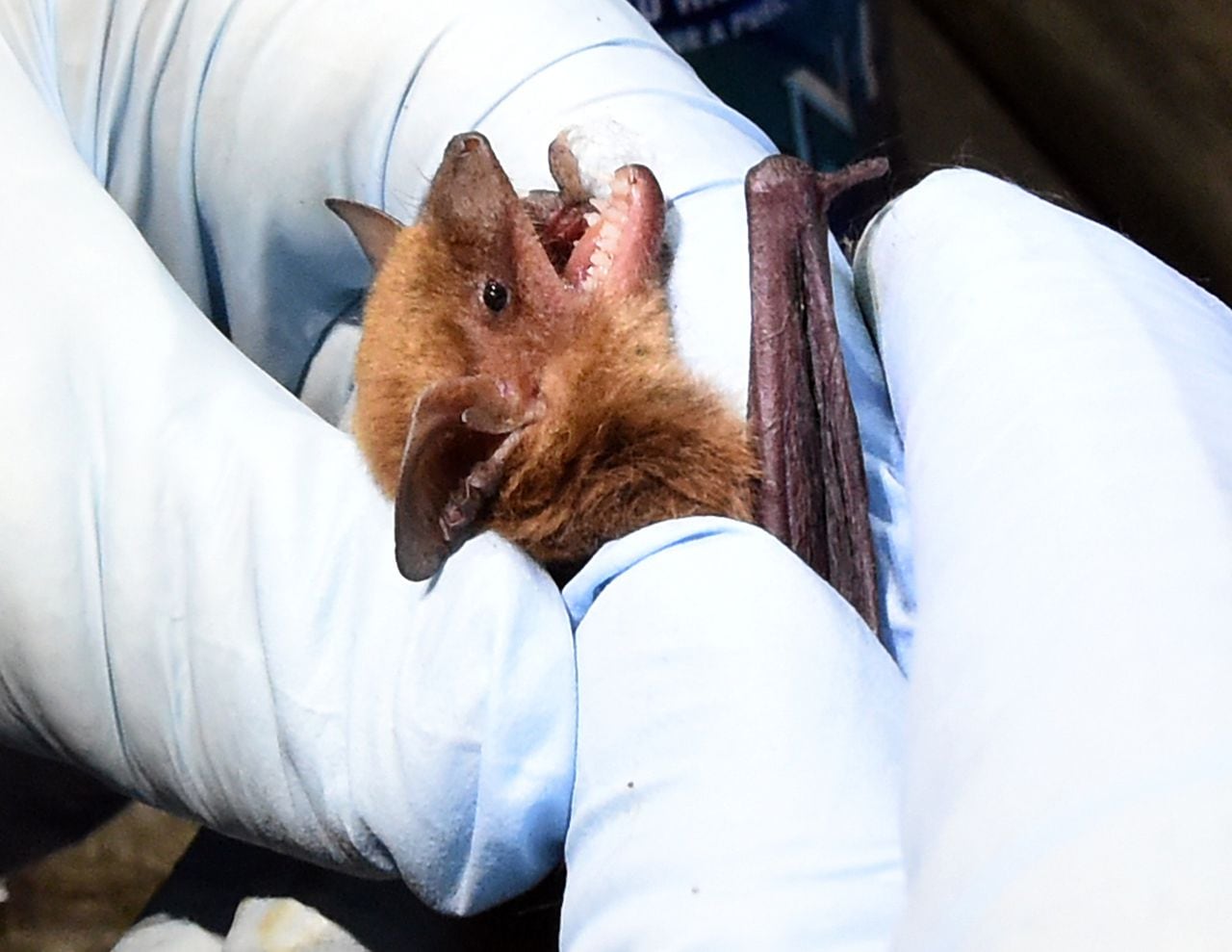Donât touch wild bats, Alabama health department warns
It may sound like common sense, but the Alabama Department of Public Health is reminding the public not to touch bats due to the risk of rabies.
Bats, along with raccoons, are the primary carriers of rabies in Alabama, the health department warns, and humans who are bitten or scratched by a bat can contract the deadly disease.
Rabies is a virus that lives in the saliva and nervous system tissue of infected animals and can be transmitted through bites or scratches.
The health department says 13 bats in Alabama tested positive for rabies last year, and that bats have small teeth that can puncture skin easily and may not leave tell-tale bite marks.
“Exposure to bats is more complicated than other animal bites because not only is there a lack of awareness that bats can have rabies, but also that their bites may be much more subtle than the typical animal bite,” Dee W. Jones, State Public Health Veterinarian, said in a news release.
Rabies is “nearly always” fatal to humans if left untreated, according to the U.S. Centers for Disease Control and Prevention, so anyone who may have been exposed to the disease should seek medical treatment immediately.
ADPH says that only a small percentage of bats are believed to carry rabies, but that infected bats may not show any obvious signs of their disease.
Jones said that if a person comes into contact with a bat, it can be helpful to capture the bat for laboratory testing, but extreme caution should be taken.
“The challenge is collecting the bat without further exposing yourself, so gloves should be worn and a shovel, net or other tools can be used to avoid touching it if possible,” Jones said.
ADPH says bats killed via blunt force trauma to the head likely cannot be tested, so the department recommends putting the captured bat into a container with air holes and taking it to a licensed veterinarian for euthanasia.
Testing the bat can determine whether a person who has been exposed needs to begin treatment for rabies, which is one dose of rabies immunoglobulin and a series of four vaccine doses over a two-week period.
ADPH says rabies is not transmitted from contact with bat guano, blood or urine.
Bats have been the sole cause of all human rabies fatalities acquired within the United States over the past 20 years, according to ADPH. Alabama has had one human death from rabies in that period, but many more reported exposures that resulted in the need for rabies preventative treatment.
Despite the rabies risk, bats are a vital part of Alabama’s natural ecosystems and play a key role in insect control in the state. One survey estimated that bats provide $3.7 billion a year in free pest control in the United States, particularly on farms.
“Problems arise when bats and humans inhabit the same dwellings,” Jones said. “It is common for bats to roost in the rafters and attics of houses, schools or other buildings and occasionally some of the bats can get inside of the living quarters. Contrary to popular thought, the age of the building doesn’t necessarily indicate the risk of having a bat roost. We have investigated reports of roosts in newer buildings and sports stadiums on school campuses, as well as older buildings in the community.”
The ADPH recommends that people should follow the advice of wildlife officials, licensed exterminators and contractors on how to exclude bats from a building. Follow these basic steps to best protect yourself from exposure to bats and rabies:
- If you are bitten or scratched by a bat, seek medical attention immediately.
- If you awaken and find a bat in your bedroom or in the room of an unattended child or a mentally disabled person, seek advice from your medical provider and report it to your county health department, in case someone has been bitten and did not notice.
- If possible, collect the bat in an escape-proof container with air holes and take to a local veterinarian for euthanasia. Do not induce trauma by blunt force.
- If you see a bat in your home and you are sure no human or pet exposure has occurred, confine the bat to a room by closing all doors and windows leading out of the room except those to the outside. The bat will probably leave soon.
- Please refer to alabamapublichealth.gov for more advice about bat infestations and exposures.

